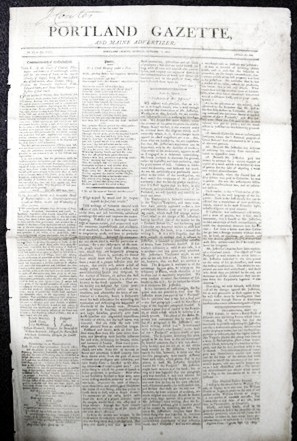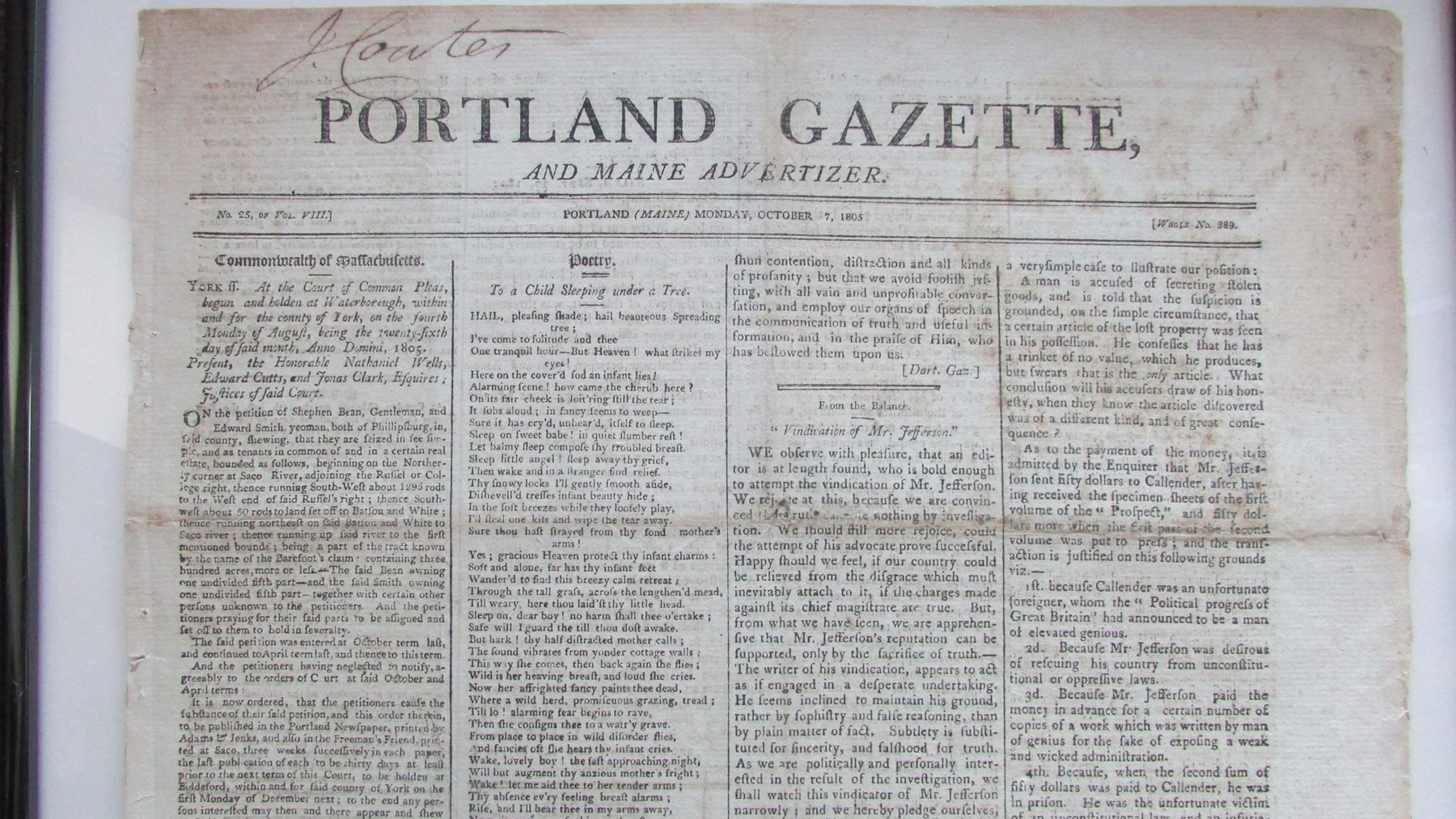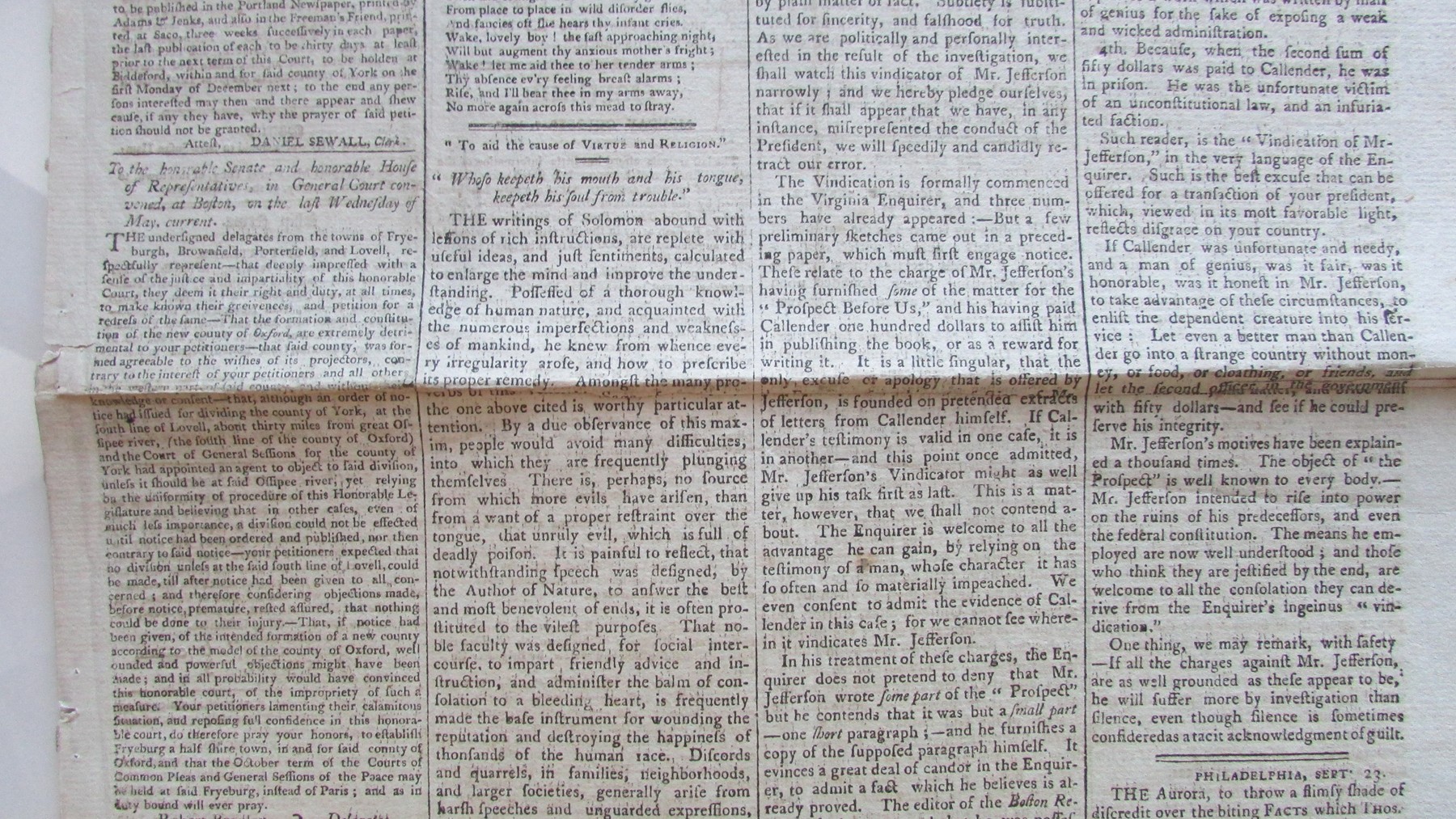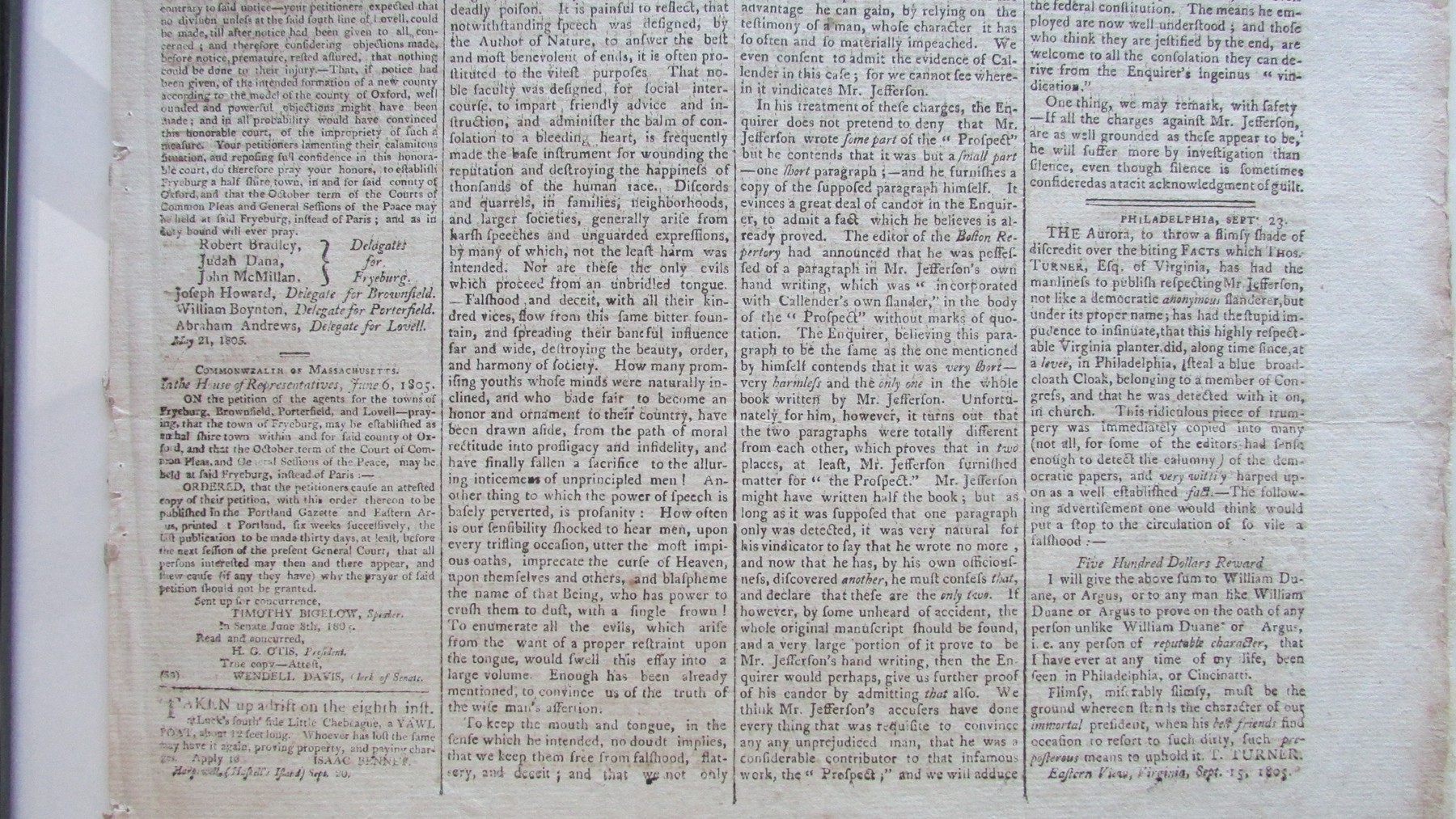|
My father, a former submarine combat vet from WW2, use to say that the only good day in any war was the day it ended. He collected these newspapers of each of the wars that the United States has been in as a way of making that point. With his passing it is time to find new homes for these treasures hopefully to remind more young Americans that the best day of a war is the last day.
You are looking on a October 7, 1805 issue of the PORTLAND GAZETTE newspaper.
This newspaper features the terms of the peace treaty ending the WAR with the BARBARY PIRATES in Tripoli. Which is the basis of the open stanza of the Marine Corp anthem and the young republics first overseas military success.
The First Barbary War
(1801–1805), also known as the Tripolitan War and the Barbary Coast War, was a
conflict during the Barbary Wars, in which the United States
and Sweden fought against Tripolitania. Tripolitania
had declared war against Sweden and the United States over disputes regarding
tributary payments made by both states in exchange for a cessation of
Tripolitatian commerce raiding at sea. United States President Thomas Jefferson refused to pay this tribute. Sweden had been at war with the Tripolitans since 1800.
The
First Barbary War was beneficial to the reputation of the United States'
military command and war mechanism, which had been up to that time relatively
untested. The First Barbary War showed that the United States could execute a
war far from home, and that American forces had the cohesion to fight together
as Americans rather than separately as Georgians, New Yorkers, etc. The United States Navy and United States Marine Corps
became a permanent part of the United States
government and United States history, and Decatur returned to the
United States as its first post-revolutionary war hero.
However,
the more immediate problem of Barbary piracy was not fully settled. By 1807,
Algiers had gone back to taking American ships and seamen hostage. Distracted
by the preludes to the War of 1812, the United States was unable to respond to
the provocation until 1815, with the Second Barbary War, in
which naval victories by Commodores William Bainbridge and Stephen Decatur led
to treaties ending all tribute payments by the US.
The newspaper is in GOOD condition. The edges of the newspaper show edge wear and the paper has some toning. The paper is not brittle.
DOMESTIC SHIPPING We use media mail for
books and periodicals. We use Federal Express for Paintings and large items. We use First Class/Priority mail for everything else. All packages are shipped
with tracking. We don't make money on
shipping. We add $1-$2 (depending on if we are using a box) to our best
estimate of the shipping cost. Every shipment is checked afterward and
any overcharges are returned. We are buyers on eBay also and dislike sellers
who overcharge for shipping. OUTSIDE THE US SHIPPING All our listed items for sale
are now being handled by eBay International shipping. We do not see what is
charged or how it is handled. Our duty is to ship it to a US address and eBay
handles it from there.
Please use the eBay cart
system for multiple purchases and ask for a combined invoice. If you have any
problems please feel free to message us through eBay.
Please
buy with confidence with thousands of prior satisfied customers. Thanks for
looking!




|